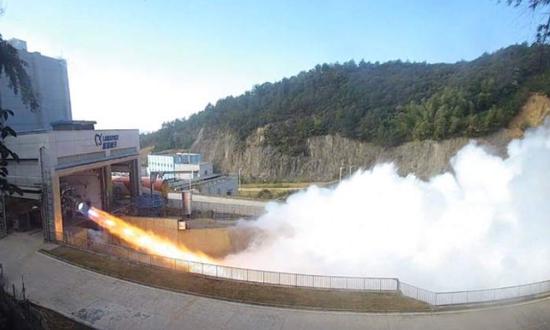
China's largest-thrust vacuum liquid oxygen and methane engine successfully completes its full-system test firings which lasted for 20 seconds, Oct. 19, 2022. (Photo/People's Daily)
China's largest-thrust vacuum liquid oxygen and methane engine, developed by Chinese commercial spaceflight company LandSpace, has successfully completed its full-system test firings which lasted for 20 seconds. The engine maintained stable operations throughout the test, media reports said on Wednesday.
The engine, codenamed TQ-15A, has a vacuum thrust of up to 836 kilonewtons, and is the second stage main engine for the second batch of the Zhuque-2, a new methane-liquid oxygen fueled rocket capable of lifting a payload of 4 tons into a 500-kilometer Sun-synchronous orbit, or a payload of 6 tons into low Earth orbit.
Zhuque-2 may have its maiden flight this year. If the launch is successful, it will become the first use of methane-liquid oxygen propellent technology in China, and it will become the first liquid rocket developed by a Chinese private firm to achieve the feat.
Compared with the current layout of the rocket's second stage engine, the new engine has reduced the complexity of the engine system and achieved a total weight reduction of approximately 400 kilograms. It has also solved the problem of interference caused by turbine exhaust.
What's more, the TQ-15A engine has a 9 percent higher vacuum thrust and a wider thrust adjustment range, as well as the ability to start three times, significantly improving the adaptability of rocket launch missions.
Currently, the Zhuque-2 Y1 rocket has completed cryogenic fueling rehearsal, and the final assembly of the rocket is being carried out at Jiaxing LandSpace Center. Based on this, the research teams are developing iterations and optimizing the second batch of rockets to provide better performance and higher reliability.










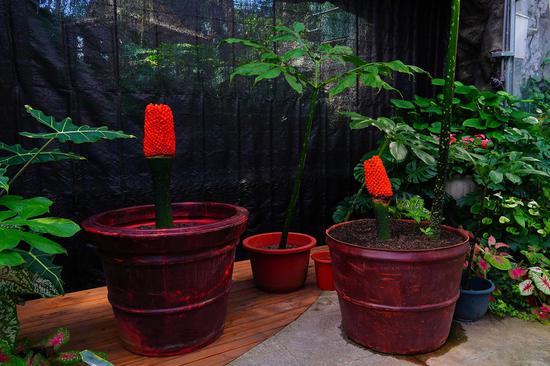



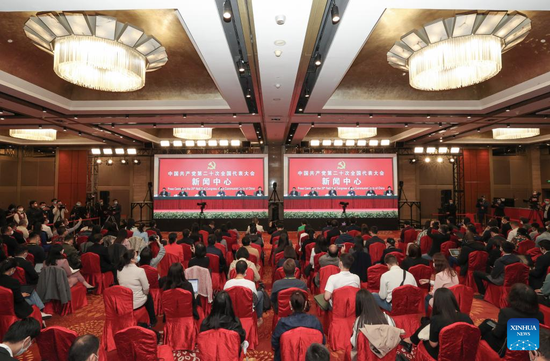
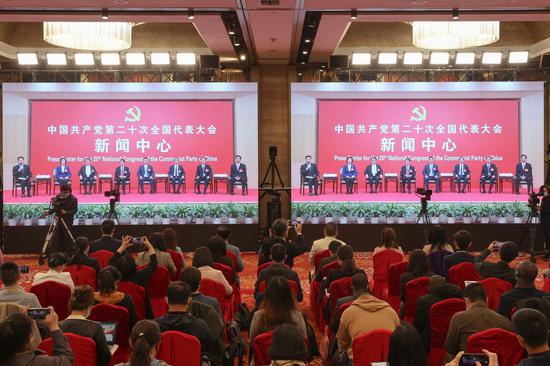
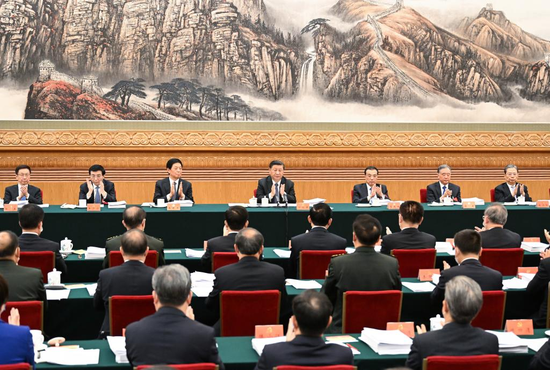
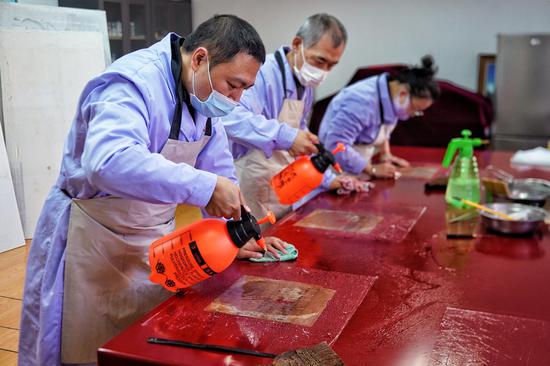




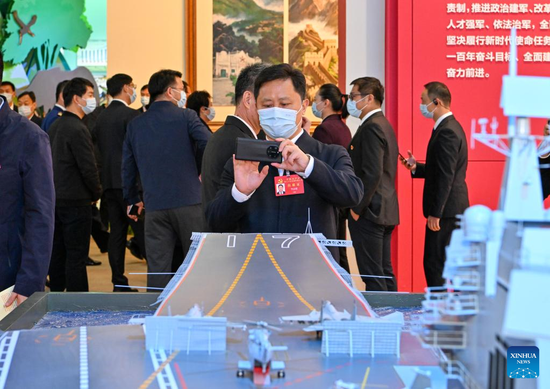

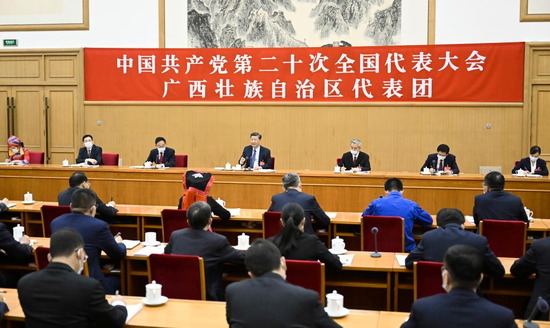



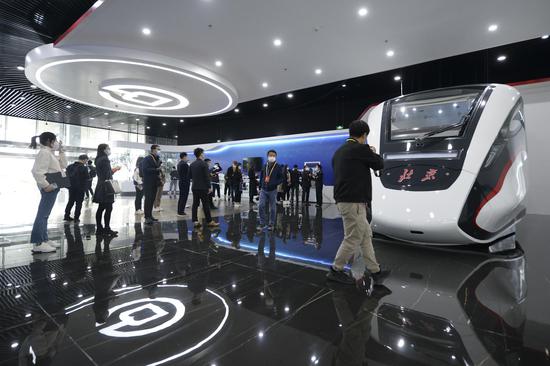

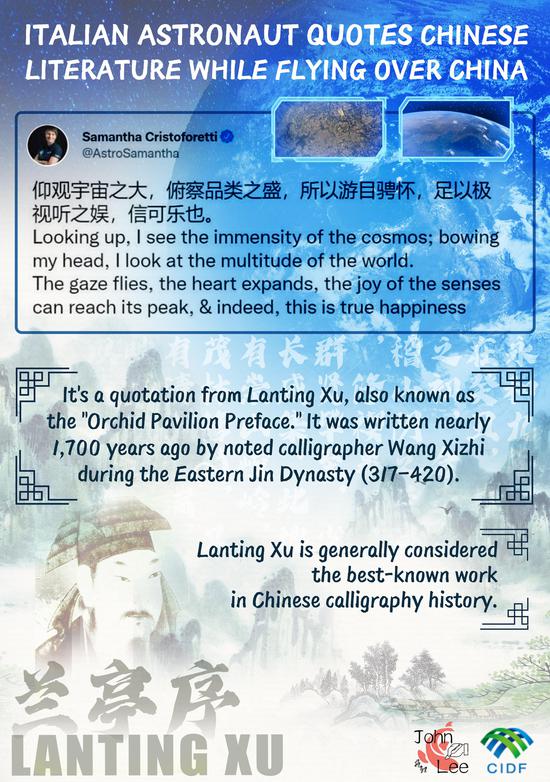

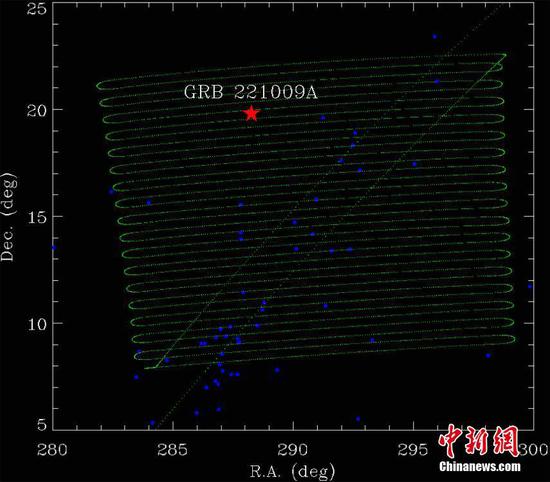
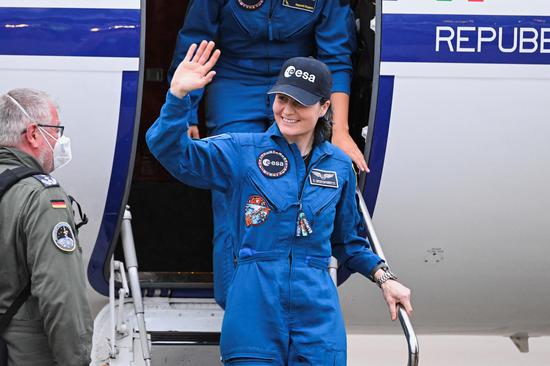
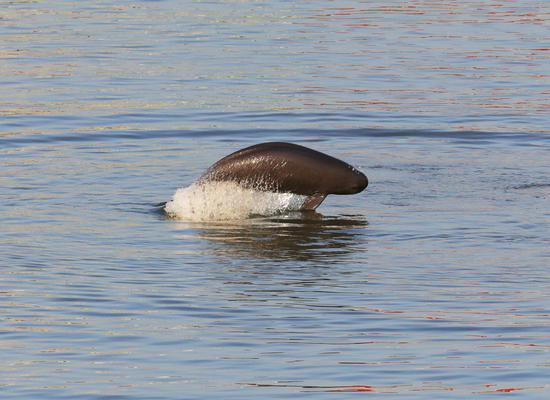

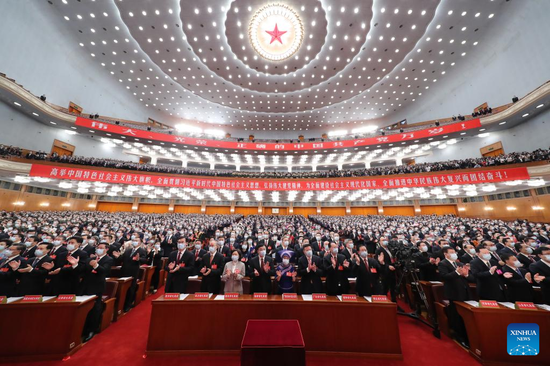
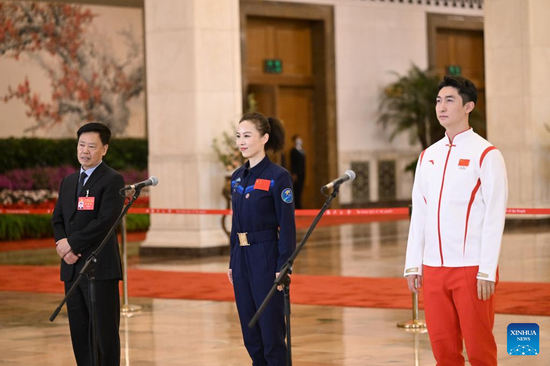
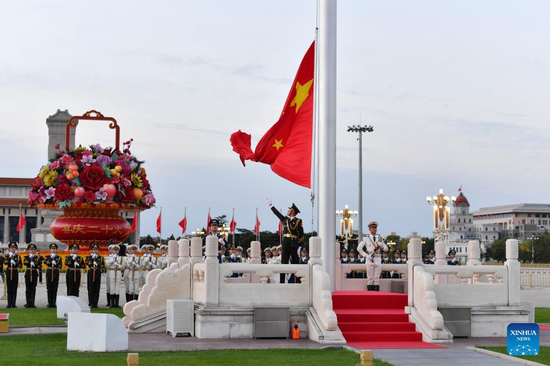



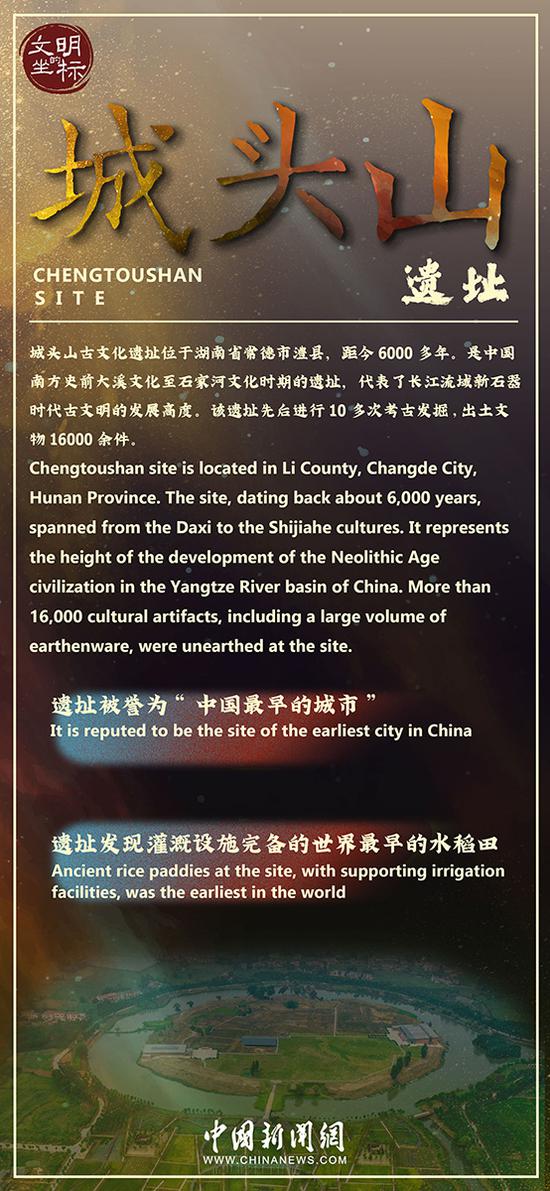







 京公网安备 11010202009201号
京公网安备 11010202009201号